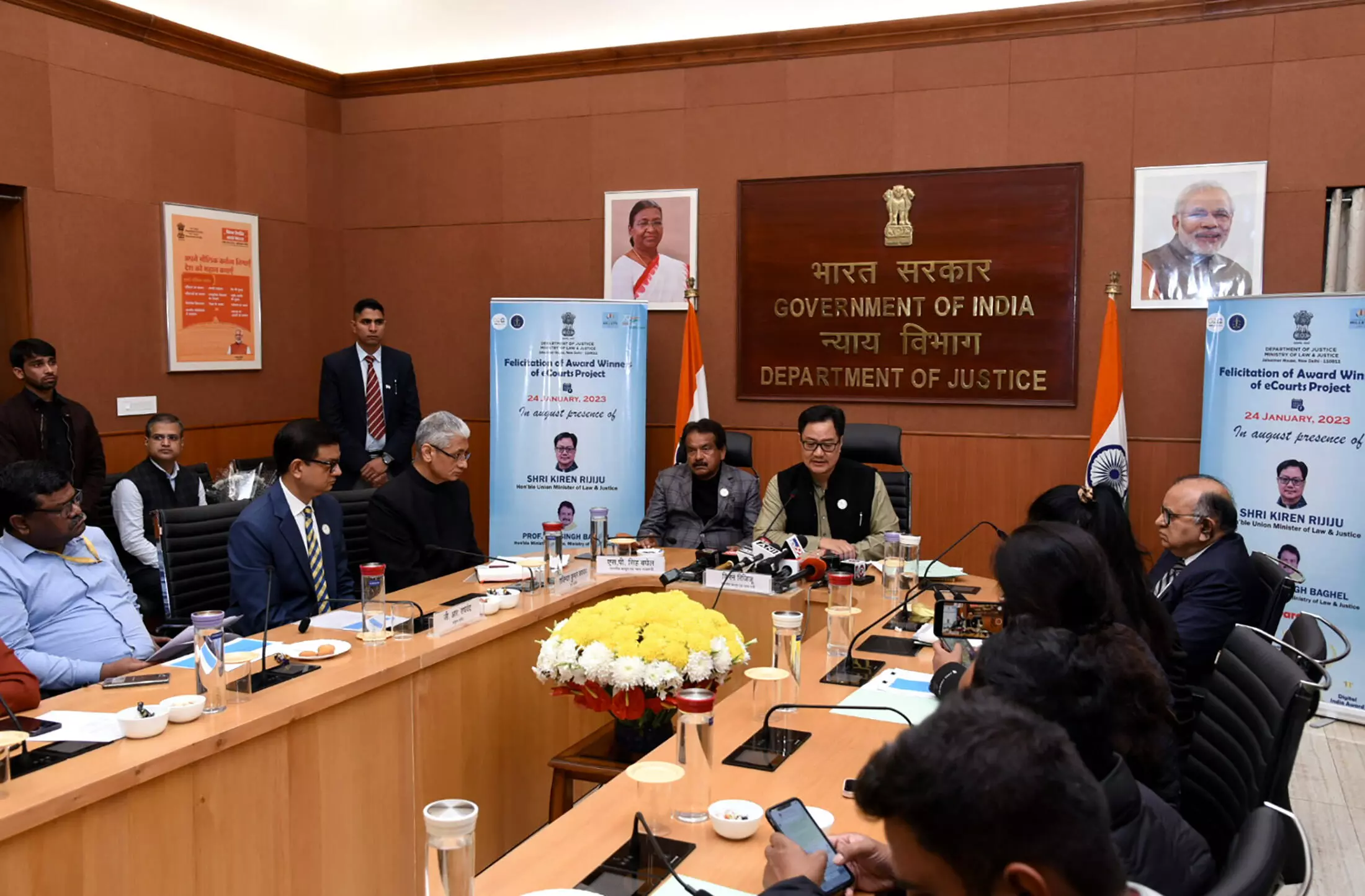The government's fast-track courts resolve over 214,000 cases, yet many challenges persist
As of 2019, the pendency rate for rape cases stood at 89.5%, with a conviction rate of only 27.8%
image for illustrative purpose

New Delhi: The Central Government's drive to expedite judicial proceedings has resulted in the establishment of 757 Fast Track Special Courts (FTSCs) across 30 States/Union Territories by December 31, 2023. These specialized courts, instated under the Criminal Law Amendment Act, 2018, are dedicated to swiftly addressing cases related to rape and the Prevention of Children from Sexual Offences (POCSO) Act.
Initially launched for a year and later extended until March 2023, the scheme has received a subsequent extension until March 2026, with a total allocation of Rs. 1952.23 crore, including Rs. 1207.24 crore sourced from the Nirbhaya Fund.
Data aggregated from various High Courts indicates that these FTSCs, encompassing 411 exclusive POCSO (e-POCSO) Courts, have effectively resolved over 214,000 cases.
Staffed with specialized judges and support personnel trained in handling sensitive cases, FTSCs prioritize prompt justice delivery, thereby mitigating the distress experienced by survivors. Noteworthy initiatives such as Vulnerable Witness Deposition Centers have been adopted to foster a supportive environment, particularly for child victims.
In addition to operational triumphs, a recent evaluation by the Indian Institute of Public Administration (IIPA) has advocated for the continuation of the scheme. The evaluation underscores the imperative for ongoing enhancements, including the appointment of specialized judges, enhancement of courtroom technology, and augmentation of forensic capabilities to expedite pending cases.
Furthermore, the recommendation underscores the importance of instituting child-friendly trial procedures and offering psychological support to victims throughout legal proceedings.
Performance Analysis of Fast Track Courts:
Despite notable achievements, the performance of FTSCs reveals certain shortcomings:
1. Pendency and Conviction Rates: According to the National Crime Records Bureau (NCRB), as of 2019, the pendency rate for rape cases stood at 89.5%, with a conviction rate of 27.8%. Similarly, for POCSO cases, 88.8% remained pending, with only 34.9% resulting in convictions.
Challenges Faced by FTSCs:
1. Infrastructure Deficiencies: FTSCs often operate akin to regular courts, lacking the requisite infrastructure and process engineering to expedite proceedings effectively.
2. Lack of Mandate Clarity: Ambiguity persists regarding the types of cases within FTSCs' purview, leading to inconsistencies in adjudication.
3. Delays in Adjudication: Absence of witnesses, lawyer-sought adjournments, and challenges to court decisions contribute to procedural delays, undermining the efficacy of FTSCs.
4. Judicial Workforce Shortages: Shortages of judicial officers, particularly in states like Uttar Pradesh, Bihar, and Madhya Pradesh, exacerbate workload pressures on FTSC judges, predominantly sourced from session courts.
While the proliferation of FTSCs represents a proactive step towards expediting judicial processes, addressing inherent challenges is essential to ensure their effectiveness in delivering timely justice and combating sexual offenses effectively.

